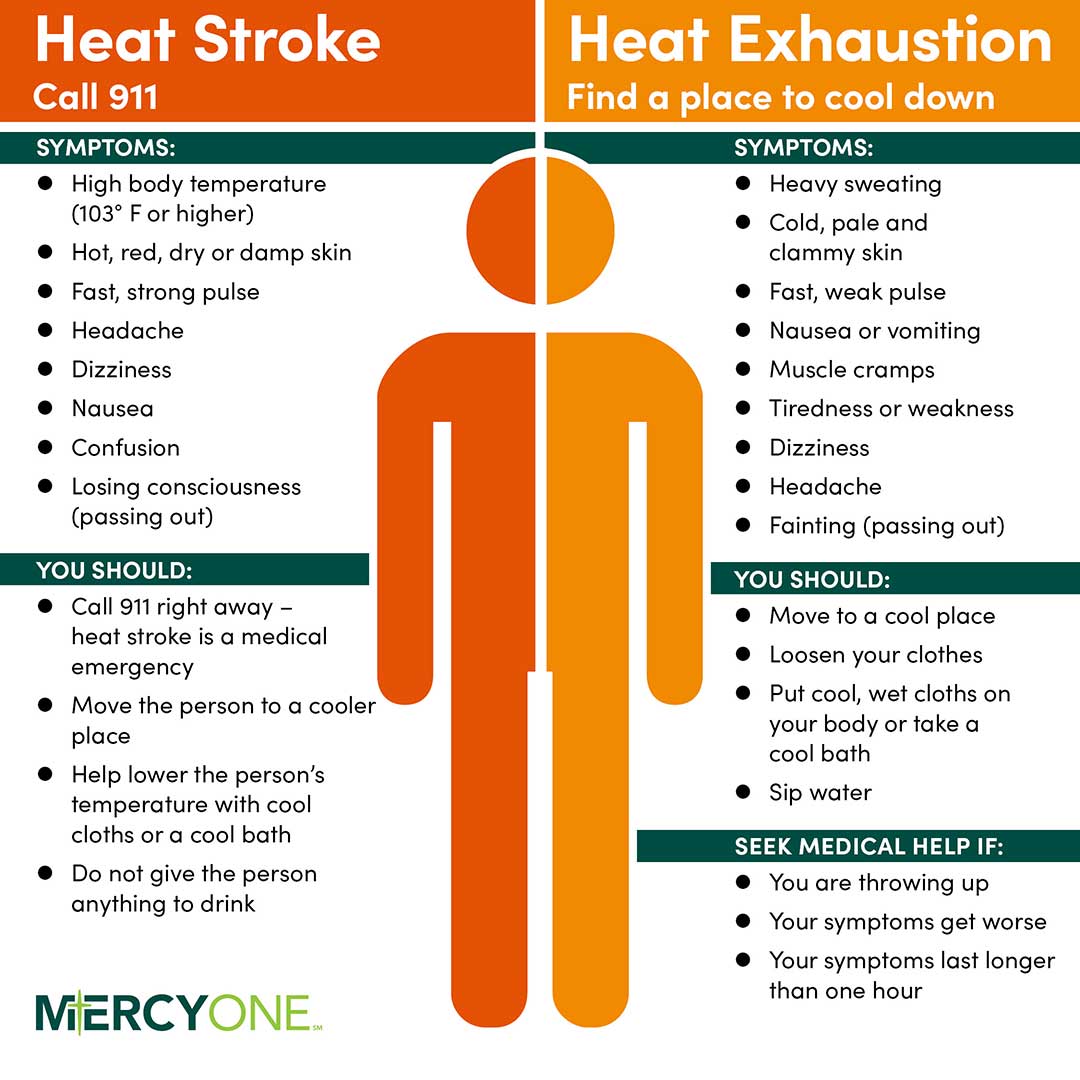
Whatever brings you outside – a bike ride with friends, a walk around the block or a barbeque with family – it’s important to stay safe when the temperature rises. Eric Martin, MD, cardiologist at MercyOne Iowa Heart Center Prevention & Wellness Clinic guides you through how to protect your heart from heat illness.
“When it gets hot outside, your heart has to beat faster and work harder to pump blood to the surface of your skin to assist with sweating to cool your body,” says Dr. Eric Martin. “If your body can’t cool itself enough, strain is put on the heart and organs can begin to suffer damage.”
Am I at risk for heat stroke?
Dr. Martin says anyone can suffer heat stroke, but people with heart disease and other cardiovascular diseases are at greater risk. If you have heart disease, your heart may not be able to work harder in the heat to maintain cooler body temperatures.
Some medications prescribed to patients with heart conditions reduce water in the bloodstream. These medications can reduce a person’s ability to cool off in the heat.
“If you have been prescribed diuretics or beta-blockers, ask your doctor how much water to drink for hot conditions versus milder temperatures and listen to your body,” says Dr. Martin.
Find out your risk for heart disease
Symptoms of heat exhaustion
Heat exhaustion is a form of heat sickness caused by your body losing too much water or salt. Symptoms include:
- Heavy sweating with cool, moist/clammy skin
- Dizziness and light-headedness
- Nausea and vomiting
- Headaches
- Weakness
- Dark urine
If you experience these symptoms, move to a cooler place, stop exercising if you are and cool down immediately by using cool wet cloths, compresses and fanning. Drink cool water as well. You may need to seek medical attention.
“Remember, while heat stroke may happen after only a short time in high temperatures, heat exhaustion results from days of exposure to high heat and can progress to heat stroke,” said Dr. Martin.
Symptoms of heat stroke
Heat stroke is an emergency. If you experience the following symptoms, apply cool water to your skin immediately and seek medical help right away.
- High fever (temperature above 104 °F)
- Hot, dry, red skin without sweating
- Pounding pulse
- Rapid shallow breathing
- Nausea and/or vomiting
- Extreme confusion or dizziness
- Unconsciousness or seizures
What can I do to prevent heat illnesses?
Everyone is at risk in high heat, but the risks are even higher for those with heart disease or high blood pressure. A few simple tips can help you prevent both heat exhaustion and life-threatening heat stroke.
- Avoid vigorous physical activity in high heat. No task or exercise program is worth risking your life. Make plans to complete a task when the weather cools. Move your exercise program to an indoor gym or pool.
- Stay hydrated by drinking water and sports drinks that contain electrolytes. Water is critical to all functions in your body. Electrolytes not only help balance hydration in your body, but they also help keep the body’s natural electrical system that governs your heartbeat working correctly.
- Avoid caffeine and alcohol. These beverages increase urination and can contribute to dehydration.
- Choose a cooler environment. Switch your air conditioning on. If you don’t have air conditioning, use fans and periodically apply cool water to your skin. If your home is still not cool enough, go to an air-conditioned mall, senior center, friend’s house or library.
- Wear light-colored, lightweight clothing in breathable fabrics such as cotton, or a synthetic fabric that repels sweat. Add a hat and/or sunglasses.
- Apply sunscreen before you go outside. A sunburn can make it harder for your body to stay cool.

